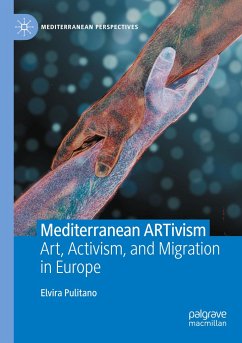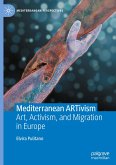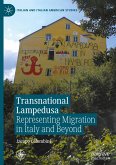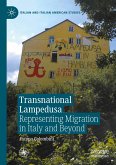This book is an interdisciplinary study aimed at re-imagining and re-routing contemporary migrations in the Mediterranean. Drawing from visual arts, citizenship studies, film, media and cultural studies, along with postcolonial, border, and decolonial discourses, and examining the issues from within a human rights framework, the book investigates how works of cultural production can offer a more complex and humane understanding of mobility in the Mediterranean beyond representations of illegality and/or crisis. Elvira Pulitano centers the discourse of cultural production around the island of Lampedusa but expands the island geography to include a digital multi-media project, a social enterprise in Palermo, Sicily, and overall reflections on race, identity, and belonging inspired by Toni Morrison's guest-curated Louvre exhibit The Foreigner's Home. Responding to recent calls for alternative methodologies in thinking the modern Mediterranean, Pulitano disseminates afluid archive ofcontemporary migrations reverberating with ancestral sounds and voices from the African diaspora along a Mediterranean-TransAtlantic map. Adding to the recent proliferation of social science scholarship that has drawn attention to the role of artistic practice in migration studies, the book features human stories of endurance and survival aimed at enhancing knowledge and social justice beyond (and notwithstanding) militarized borders and failed EU policies.
Bitte wählen Sie Ihr Anliegen aus.
Rechnungen
Retourenschein anfordern
Bestellstatus
Storno








